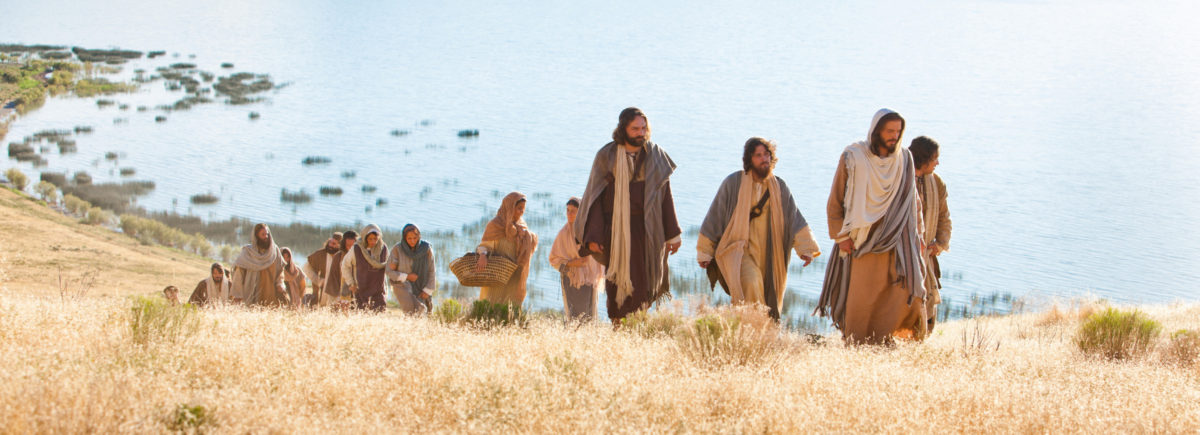Simple Thoughts for a Christian Life
Following the example of Jesus Christ is not a trivial thing. It takes a lot of work in the midst of the difficulties of our lives and those around us. However, the fundamentals of the gospel of Christ are not complicated. In listening to a number of people lately, I have boiled it down to 4 pairs of words.

Charity and Virtue are two words that capture the life we are supposed to be living. Charity has been defined a “the pure love of Christ” [Mor 7:47]. I like to think of that kind of pure love for someone to be the willingness to do what truly best for them. If we have that Christ-like charity we will really want what is best for everyone rather than what we want ourselves.
Virtue, particularly in our thoughts, is our first line of defense against wrongdoing. No bad deed occurred without preceding unvirtuous thoughts. Virtuous thought can prevent any number of painful mistakes.
Return and receive
Knowing where we are going, why we are following Christ and what we hope to gain is critical to staying the course. It is hard to keep working at something for no particular reason. M. Russell Ballard recently gave a talk in which he captured the goals of a follower of Christ in these two words: return and receive.

As followers of Christ, practicing charity and virtue, we hope to return to our Father in Heaven and receive all of the blessings that he has prepared for his children. That is the goal of a Christ-like life. God is our Father and has prepared this life so that we can choose what we want to be. If we choose to follow Christ then we can return to our Father. We can choose other goals and receive the fruits of those choices, but the goal of a Christ-like life is to return to our Father and receive what he has prepared for us.
Rationalize and Rebel
Living a charitable and virtuous life is hard. Lots of people do lots of unlovable things. In our media saturated world, maintaining virtuous thoughts can be a challenge. We all have thoughts, feelings and sometimes actions that we are not proud of.
The sacrifice of Jesus Christ has made it possible to repent of our mistakes and to recover from our failings. What a blessing that is. It is the only thing that makes progress possible. However, all of us find ourselves repeatedly repenting of the same mistakes. After a while it does not feel like we are repenting or progressing at all. This gets very discouraging.

J. Devn Cornish recently gave a talk in which he indicated that the key is to not rationalize and not rebel. When we do something, see something or feel something that we should not have, it is easy to say “that was no big deal.” That is rationalization. The problem is that by minimizing and excusing the mistake we block ourselves from repenting. Not repenting prevents us from returning to a Christ-like life. As long as we are not rationalizing away our mistakes we can fix them, with Christ’s help.
Rebellion is worse. That is when we refuse to follow him. Someone else’s mistake is too hurtful to forgive. Someone deserved what we did to them. We rather enjoy pornography rather than fleeing from it. As long as we are in rebellion, we deny ourselves the opportunity for improvement that Christ offers. We drift away from a life of charity and virtue. We are no longer on that path to return and receive.
However, if we do not rationalize and we do not rebel Christ’s Atonement can help us back. We can enjoy the fact that although we are mortal and fallible, the goal is still ours to achieve.
Scripture and Spirit
The discussion above generally applies to everyone. However, we are not living everyone’s life. We are living ours. We need guidance as to the specific choices that we personally need to make right now.

Our personal guideposts come from scripture and the Holy Spirit. Scripture is words received from God, by prophets, written down and preserved for us. We can’t achieve the Father’s goals for us if we will not pay attention to he who set it. Daily scripture study serves as markers and reminders of things we need to fix or places we may not have noticed are in need of repair.
The greatest guidance of all is the Holy Spirit. It is his role to show each of us, individually, what we need to do today to live a more Christ-like life. It is through his guidance that we get down to the real nitty-gritty of day to day choices.
Summary
So there you have it. Following Christ in 8 words. We should live a life of charity (love) and virtue which will lead us to return to God our Father and receive all the blessings he has for us. If we fail we can continuously repent and improve provided we do not rationalize our sins or rebel against a Christ-like life. We can best see our own personal way back to God through scripture and spirit.
Save
Save
Save








